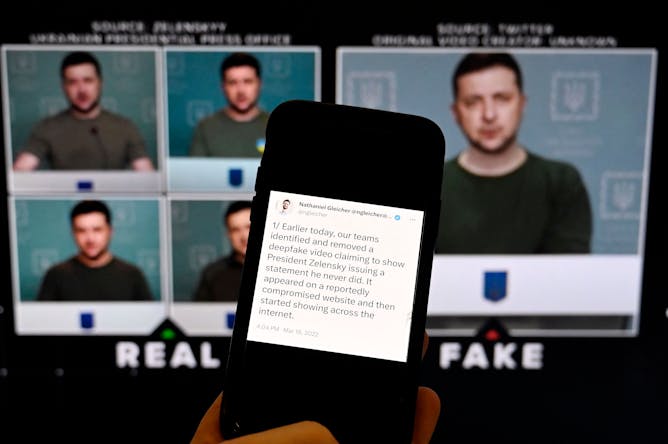|
Happy Sunday. Welcome to the best of The Conversation.
Just published:
If you’ve spent some time recently wondering – or, more likely, worrying – about how generative AI like DALL-E and ChatGPT could transform American business and society, you’re not alone. Since the end of March, more than 17,000 people – including Elon Musk, Steve Wozniak, Max Tegmark and Andrew Yang – have urged the industry to stop training the latest AI technologies or for governments to “impose a moratorium.”
But is the U.S. Congress well equipped to regulate this emerging technology? We asked three experts on technology policy, Penn State’s S. Shyam Sundar, Texas A&M’s Cason Schmit and UCLA’s John Villasenor, to help us begin to understand why regulating AI is difficult to do and important to get right.
Later this week, we’ll bring you stories about Jovian moon missions, why it’s not a bad idea to pay for mass transit and the trend of painting your lawn green.
Happy Easter! Today is a good time to learn more about the holiday’s complicated history and the tens of millions of chocolate bunnies that come along with it.
|

Dog-walking income is taxable.
Robert Nickelsberg/Getty Images
Erica Neuman, University of Dayton
An accounting expert points out that income Americans previously thought was invisible to the IRS will now be tallied up and reported by Venmo and similar apps.
|
|
|
-
Paul M. Collins Jr., UMass Amherst; Matthew Eshbaugh-Soha, University of North Texas
Presidents have historically criticized judicial decisions. But Trump is taking it a step further with potentially dangerous personal attacks on judges.
-
Joseph N. Cooper, UMass Boston
Asking the mostly Black women’s basketball team at LSU to share the limelight with the white team it beat in the championship game represents a double standard, a scholar of sports and race says.
-
Jeffrey Bellin, William & Mary Law School
The Manhattan District Attorney will need to prove several different points in its prosecution of Trump. But securing an unbiased jury will also challenge the execution of this unprecedented case.
-
Austin Sarat, Amherst College
The arrest of a former American president is unprecedented, but the nation’s founders anticipated the day would come.
|
|

The new generation of AI tools makes it a lot easier to produce convincing misinformation.
Photo by Olivier Douliery/AFP via Getty Images
S. Shyam Sundar, Penn State; Cason Schmit, Texas A&M University; John Villasenor, University of California, Los Angeles
Powerful new AI systems could amplify fraud and misinformation, leading to widespread calls for government regulation. But doing so is easier said than done and could have unintended consequences.
|
|
|
-
Arthur Glenberg, Arizona State University; Cameron Robert Jones, University of California, San Diego
Large language models can’t understand language the way humans do because they can’t perceive and make sense of the world.
-
Daniel F. Stone, Bowdoin College
People tend not to think that their own emotions could simply be wrong. But research shows that people excessively dislike others who disagree with them.
-
Stephen P. Leatherman, Florida International University
Scientists are predicting a record sargassum bloom in 2023. It’s already starting to wash up on beaches in Florida and the Caribbean and cause a stink.
-
Arif R. Sarwari, West Virginia University
Candida auris is a relatively new addition to a family of fungi that can infect people. Most of these infections occur in sick, hospitalized patients and can be deadly.
|
|
|
|